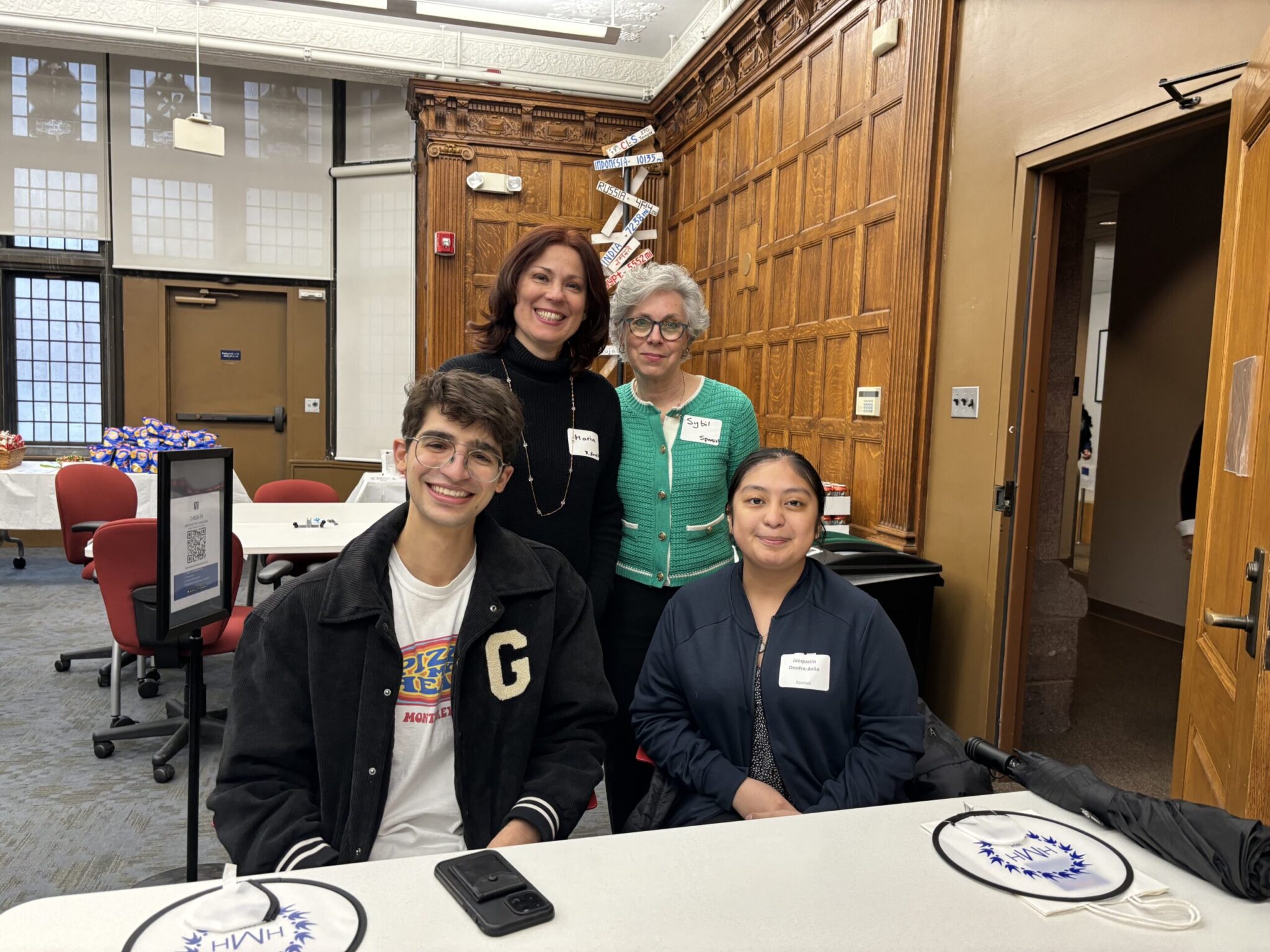Heritage Meets Heritage project builds sense of belonging among heritage speakers
Yale’s Heritage Meets Heritage Project is rebranding from a research project into a social and supercurricular initiative that unites heritage speakers.

Courtesy of Maria Kaliambou
Across eight different language programs, faculty members host intercultural social events every year to unite heritage speakers at Yale through the Heritage Meets Heritage project.
At Yale, heritage language courses are meant for students who have been exposed to a language at home and wish to continue learning it in college. However, opportunities for interaction and community-building among students learning heritage languages remained scarce until recent years.
Heritage or “kitchen” languages are minority tongues spoken at immigrant or indigenous homes. Because they are dominated by the mainstream language, heritage languages are not commonly taught in school or spoken in public.
The social events hosted by the Heritage Meets Heritage project celebrate the diversity of languages and cultures in heritage language courses, and serve as an extension of the Heritage Meets Heritage research project, started in 2016.
“[Heritage Meets Heritage] started out as a research project among four languages at Yale (Spanish, Russian, Korean and Greek). Students filled out anonymous questionnaires and had videotaped conversations among each other; we presented it in conferences,” recounted Maria Kaliambou, Senior Lector at the Hellenic Studies Program and instructor of Modern Greek. “When COVID hit, we faced the challenge of having only two students participating, one studying Greek and the other Spanish. It was a challenging period. Now, we’ve relaunched the project with a new approach, transitioning to a more interactive and playful phase.”
Kaliambou, a founding collaborator, recalled her experience seeing the project develop over the years. It was originally meant as a way to gauge the challenges experienced by students in heritage language classes, as well as a way to inform future curricula in the languages departments.
Kaliambou said that during the first phase of the project, students took a questionnaire about their language proficiency, identity and cultural upbringing. Later, students learning different ancestral tongues were paired and discussed their experiences as heritage speakers.
One of the findings was that many heritage speakers were united in their challenges.
For instance, many participants recounted that they did not want to take classes in their heritage language as children but now regret that and want to learn more about their ancestral tongue to deepen their cultural appreciation.
While the Heritage Meets Heritage project started in 2016 with four languages, it has since expanded to eight.
Two years ago, heritage language courses started being offered for Modern Standard Arabic.
Sarab Al Ani, senior lector II of modern Arabic, said that they first noticed a demand for Arabic heritage language courses in 2017, when she recalled a change in admission trends.
“We had always had heritage learners, but it was around a couple in a cohort of 50. So they were always a part of our regular classes and we tried to do differential instruction to meet their needs,” Al Ani said. “But after 2017, we noticed that the number of heritage Arabic students who are interested in taking classes increased. So we decided to start a new track of courses devoted to heritage learners. This is the second year that we’ve been offering such courses.”
Al Ani mentioned that the students enrolled in her class hail from diverse backgrounds. She said that this gives students the opportunity to compare differences in expression across various dialects and regions.
Although Arabic heritage language courses are currently offered in L2 and L3, different languages structure their courses differently — and one goal of the Heritage Meets Heritage project is to inform these developments in course structure. For Chinese, 7 different heritage language courses are offered from L1 to L5. For Russian, however, L1-L2 and L3-L4 are grouped together.
Estelle Balsirow ’26 described her experience taking Russian heritage language courses RUSS 122 and RUSS 142 last year.
Balsirow said that she was grateful to have had a heritage language course her first year. Despite having learned Russian as a kid, she had never had any formal instruction. She said the course structure prioritized strengthening students’ weaker skills, which was helpful for streamlining her formal communication skills.
Lukas Koutsoukos ’27, a student of Kaliambou’s, said: “It’s fascinating to hear how customs from a plethora of different ethnic groups can be so different but strikingly similar. From friends and relatives giving us funny nicknames to the chaos of large family gatherings, Heritage Meets Heritage taught me that people from across the globe actually share much in common.”
Heritage language courses are offered in Arabic, Chinese, Modern Greek, Korean, Hebrew, Hindi, Spanish and Russian.







